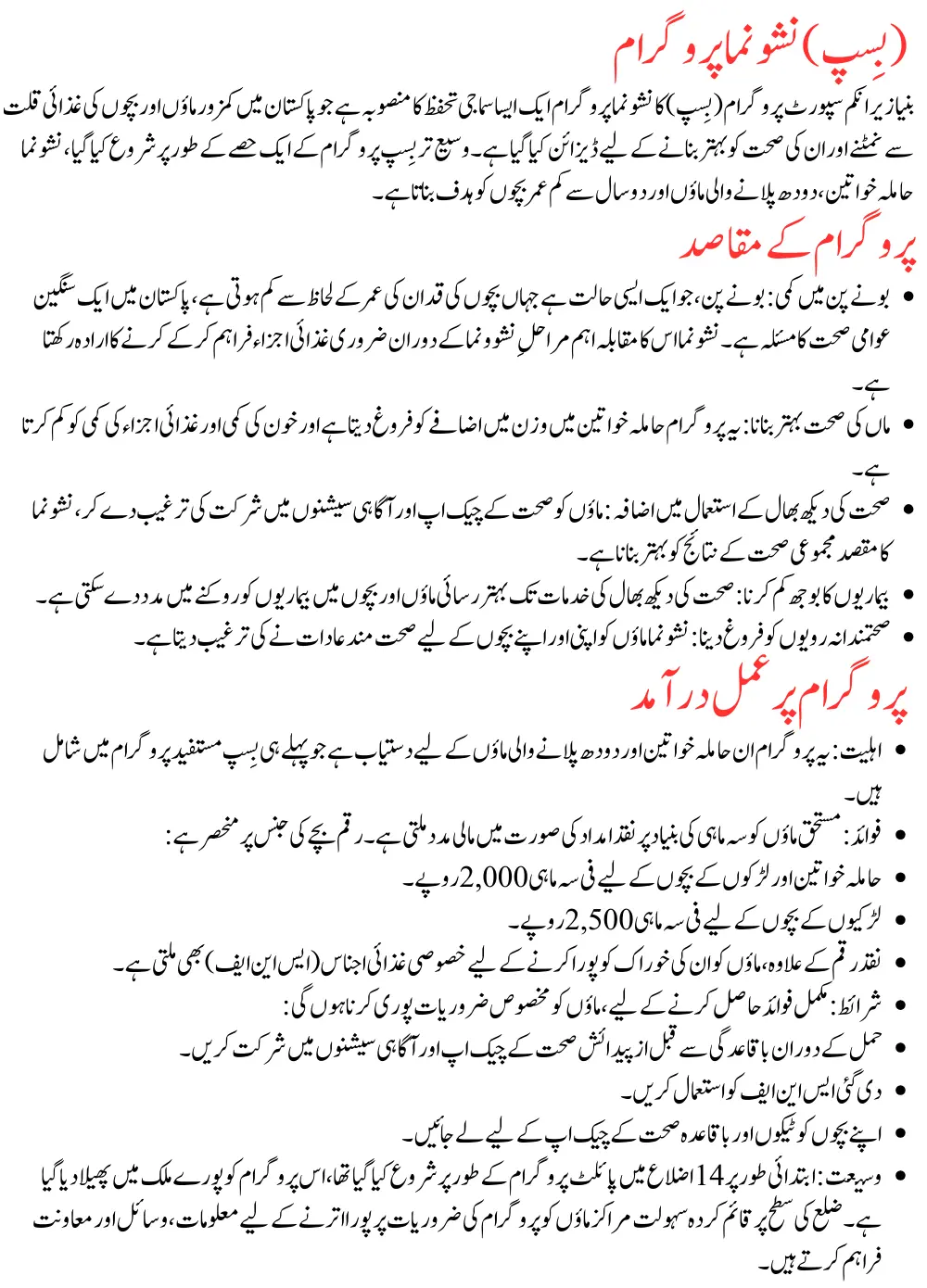 Join WA
Join WA

The Benazir Income Support Programme (BISP) Nashonuma Program is a social safety initiative designed to combat malnutrition and improve the health of vulnerable mothers and children in Pakistan. Launched as part of the broader BISP program, Nashonuma targets pregnant women, lactating mothers, and children under two years of age.
The BISP Nashonuma Program has several key objectives:
The program is available to pregnant women and lactating mothers who are already enrolled in the BISP beneficiary program.
Eligible mothers receive financial assistance in the form of quarterly cash stipends. The amount varies depending on the gender of the child:
In addition to cash, mothers receive specialized nutritious food (SNF) to supplement their diet.
To receive the full benefits, mothers must fulfill specific requirements:
Initially piloted in 14 districts, the program has been rolled out nationwide. Facilitation centers established at the district level provide mothers with information, resources, and support to comply with program requirements.
The BISP Nashonuma Program represents a significant step towards improving maternal and child health in Pakistan. By providing financial assistance, nutritional support, and healthcare education, the program empowers mothers to make informed choices about their health and the well-being of their children. The program's success can be measured by a reduction in stunting rates, improved maternal health indicators, and increased healthcare utilization among beneficiaries.
The BISP Nashonuma Program serves as a model for other countries seeking to address malnutrition and improve health outcomes in vulnerable populations. By combining financial incentives, nutritional interventions, and healthcare education, the program offers a comprehensive approach to promoting long-term health and well-being.